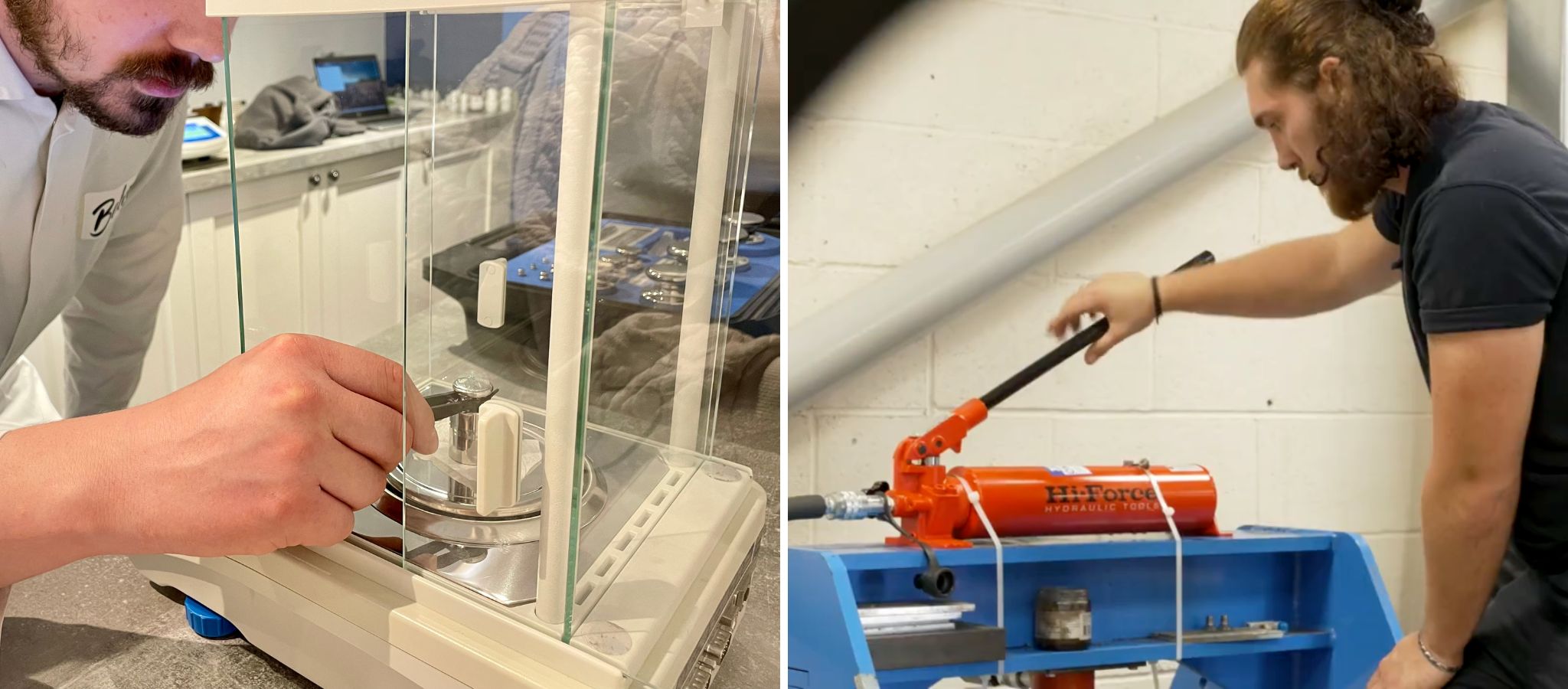The Differences Between Mass Calibrations and Force Calibrations for Weighing Equipment
When it comes to weighing equipment, there are two primary types of calibration methods: mass calibration and force calibration. Each serves a specific purpose and is used in different scenarios, depending on the type of equipment being calibrated and the level of accuracy required. In this blog post, we’ll explore the differences between these two methods, when each is appropriate, and the limitations you should be aware of.
What is Mass Calibration?
Mass calibration is the process of verifying and adjusting the accuracy of a weighing instrument by comparing it against a known mass standard, typically a weight that has been calibrated to a national or international standard. This method is commonly used for most types of weighing equipment, from laboratory balances to industrial scales.
When to Use Mass Calibration:
Laboratory Balances: When precision is paramount, as in pharmaceutical or chemical research, mass calibration ensures that the balance can accurately measure small quantities of substances.
Industrial Scales: For businesses that rely on weighing large quantities of goods, such as in the food or logistics industries, mass calibration ensures that the scales are providing accurate readings, which is critical for both compliance and cost management.
Limitations of Mass Calibration:
Gravity Dependency: Mass calibration assumes that the force of gravity is consistent across all locations. However, slight variations in gravity depending on geographic location can introduce small errors, although these are typically negligible in most practical scenarios.
Non-Dynamic Measurement: Mass calibration is ideal for static measurements but does not account for dynamic forces that may act on the equipment, such as vibrations or movement, which can be crucial in some industrial applications.
What is Force Calibration?
Force calibration, on the other hand, involves applying a known force to the weighing equipment and measuring its response. This method is particularly useful for devices that are designed to measure force directly, such as load cells or force gauges. Unlike mass calibration, which relies on the gravitational force acting on a known mass, force calibration directly applies a mechanical force, making it more suitable for certain types of equipment.
When to Use Force Calibration:
Weigh Pads: Weigh pads, used to measure the weight of vehicles, often require force calibration to ensure accuracy. MWS has two 10-tonne force calibration rigs specifically designed for this purpose, allowing us to test and calibrate weighing pads effectively.
Load Cells: Load cells, which are integral components in many scales and weighing systems, benefit from force calibration to ensure they are accurately measuring the forces applied to them. MWS can perform load cell calibrations via signal injection using a process calibrator or via force compensation using hydraulic jacks with reference load cells.
Limitations of Force Calibration:
Not UKAS Approved: One significant limitation of force calibration is that it is not UKAS approved. This can be a drawback for businesses that require UKAS-accredited calibration for regulatory compliance.
Application Specificity: Force calibration is not suitable for all types of weighing equipment. It is primarily used for devices designed to measure force directly and may not provide accurate results for equipment calibrated using mass standards.
Summary: Choosing the Right Calibration Method
At MWS, we understand the importance of selecting the right calibration method for your weighing equipment. We offer both mass calibration (ISO 9001 and UKAS ISO 17025) and force calibration (ISO 9001) services to ensure that your equipment operates with the highest level of accuracy and reliability.
For weigh pads, our two 10-tonne force calibration rigs are specifically designed to meet the demanding requirements of heavy industrial applications.
If you’re unsure which type of calibration is right for your equipment, we encourage you to speak to one of our weighing specialists. We can provide expert guidance to ensure that your equipment is calibrated correctly, meeting both your operational needs and any regulatory requirements.
Contact us today to discuss your calibration needs.





















